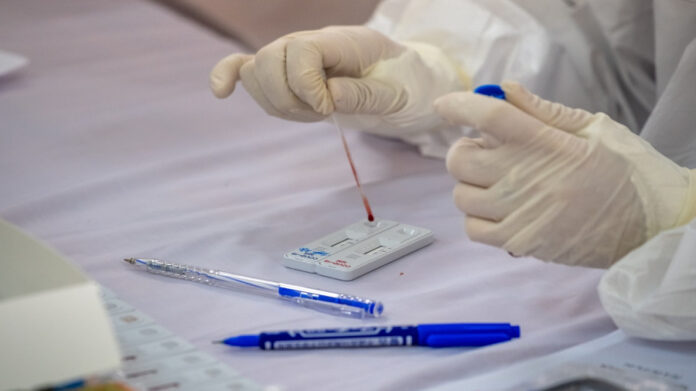The National Office of the Tunisian Syndicate of Private Pharmacies Owners announced that it has initiated the necessary procedures to challenge the decision of the Minister of Health regarding the license to use rapid tests for health professionals.
The union said that this decision contradicts the law related to freedom of prices and the definition of rules regulating freedom of competition.
The head of the union, Nawfal Amira, said in a statement to “JDD Tunisie,” that the price set by the Ministry of Health, estimated at twenty dinars, is illogical and illegal.
He added that several other equipments are used in the analysis process, such as gloves and protective clothing, whose price is estimated at about 30 dinars, which must be changed whenever a positive case is discovered.
He said that chapters 2, 3 and 4 of Law No. 36 of 2015 relating to freedom of prices, which states: “In order to resist excessive price increases or collapse, it is possible, pursuant to a decision of the Minister in charge of Trade, to take temporary measures justified by a situation of crisis, natural pandemic, exceptional circumstances, or The market situation is unusual and prominent in a particular sector, provided that the period of application of this decision does not exceed six months.”
It is worth noting that the prices of rapid tests currently range between 30 and 40 dinars in various pharmacies
On July 15, 2021, the Official Gazette issued a decision of the Ministry of Health regarding controlling the licensing of pharmacists or their attendants in conducting injections and vaccinations. and without a prescription for medicines not listed in these schedules.
It also licensed pharmacists to perform injections and vaccinations according to the same conditions as the first chapter, but under the responsibility of the pharmacist and provided that they hold a certificate of professional ability from the Ministry of Health.
A certificate of professional ability is issued by the Ministry of Health to pharmacists who have successfully passed a professional exam that is the conclusion of a stage of theoretical lessons and a practical training organized by the Ministry of Health for their benefit in cooperation with the National Council of the Authority of Pharmacists.
In this decision, the Ministry of Health stressed the need for injections and vaccinations to take place inside pharmacies, using sterile equipment and single-use syringes
It called for all injections and vaccinations to be recorded in a special ledger that is marked and initialed on all its pages by the inspecting pharmacist showing the identity of the doctor who prescribed the injection or, when necessary, the vaccination, the identity of the patient, the type of medicine, the type of vaccination used, and the method of injection or vaccination.








